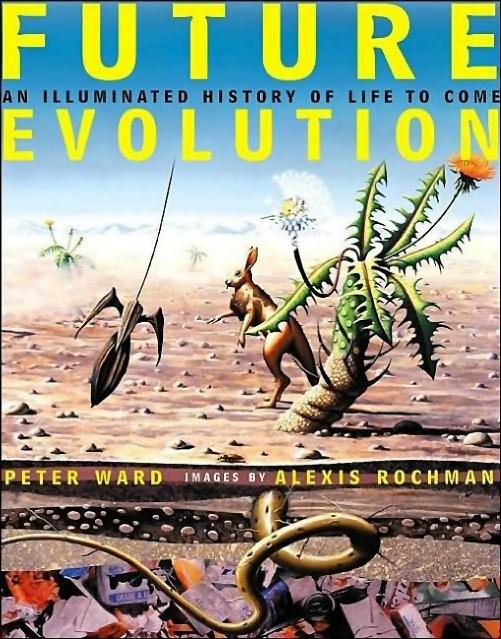Future Evolution by Peter Ward

Author:Peter Ward
Language: eng
Format: mobi, epub, pdf
Published: 2018-07-09T03:00:00+00:00
* * *
effect on fish stocks, since these habitats are breeding grounds for many important species.
The seas are also the final resting places of most anthropogenic pollution. River systems dump waterborne waste into the sea; winds carry airborne pollution into the sea; excessive nutrients from nearby cities create dense carpets of algae that ultimately rot in the sea. Such algal blooms take oxygen out of the water and create large “dead zones”. Much of the Gulf of Mexico is now afflicted by such dead zones. Other consequences of nutrient loading in the oceans are an increase in red tides and an increase in paralytic shellfish poisoning. Synthetic organic chemicals also end up in the sea, as do radioactive materials and heavy metals such as mercury.
All of these factors make the oceans one of the most potent cauldrons for future evolutionary change. Yet of all of the ecosystems on Earth, the oceans may see the least amount of species-level extinction and, perhaps paradoxically, the most new evolution. The reasons are several. First, despite our best efforts, even completely overexploited and subsequently “crashed” fisheries stocks do not go extinct. But they do not recover as long as fishing continues — and as long as there is a large human population, there will be overfishing. At the same time, the vast size of the oceans and their lack of native habitability by humans will always provide a buffer for marine creatures. Try as we will to invade them, the oceans will always be far less perturbed than the land. Thus, as new species are formed (beginning, always, as tiny isolated populations), there is less chance that human intervention will immediately stop the new speciation process.
Second, the removal of top carnivores — the species most exploited by humans — will leave a void that will be filled by natural selection and new speciation. Although humans exploit the upper parts of marine food webs, the lower trophic levels are barely touched. Humans do not exploit, for example, the copepods, small worms, and other invertebrates making up the majority of the ocean biomass. New species will evolve to fill the vacuum created by the drastic reduction in numbers of commercial fish stocks.
What will evolve to take the place of the larger fish species? Because fish, according to the fossil record, appear capable of evolving rapidly, it may be that the new species will be other fish. But if large fish species evolve to replace those reduced or rendered extinct by overfishing, the same trend may happen again, and they will become the overexploited. It is more likely that either many small fish species will evolve, or the positions in the upper parts of the marine food chain will be filled by larger invertebrates.
90
Download
Future Evolution by Peter Ward.epub
Future Evolution by Peter Ward.pdf
This site does not store any files on its server. We only index and link to content provided by other sites. Please contact the content providers to delete copyright contents if any and email us, we'll remove relevant links or contents immediately.
| Fossils | Game Theory |
| Genetics | Molecular Biology |
| Organic | Paleontology |
Sapiens: A Brief History of Humankind by Yuval Noah Harari(13038)
Sapiens by Yuval Noah Harari(4529)
Homo Deus: A Brief History of Tomorrow by Yuval Noah Harari(4272)
Pale Blue Dot by Carl Sagan(3996)
Origin Story: A Big History of Everything by David Christian(3133)
Livewired by David Eagleman(3115)
Brief Answers to the Big Questions by Stephen Hawking(2873)
Inferior by Angela Saini(2829)
Origin Story by David Christian(2677)
The Evolution of Beauty by Richard O. Prum(2550)
Signature in the Cell: DNA and the Evidence for Intelligent Design by Stephen C. Meyer(2496)
The Gene: An Intimate History by Siddhartha Mukherjee(2488)
Aliens by Jim Al-Khalili(2376)
How The Mind Works by Steven Pinker(2207)
Sex at Dawn: The Prehistoric Origins of Modern Sexuality by Ryan Christopher(2148)
From Bacteria to Bach and Back by Daniel C. Dennett(2146)
A Short History of Nearly Everything by Bryson Bill(2131)
Endless Forms Most Beautiful by Sean B. Carroll(2080)
Who We Are and How We Got Here by David Reich(2057)
